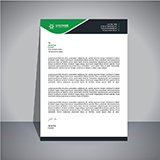Insurance carriers depend on the independent agencies that represent them to produce the types of business they want. Implicit in this is that the agencies will follow the carriers’ underwriting guidelines. Sloppiness in adhering to them can cause serious problems.
A bank-owned agency in Missouri represented a Massachusetts carrier. Their contract required the agency to sell coverage in accordance with the carrier’s guidelines; to obtain and keep completed applications and related documents, and to hold the carrier harmless for the agency’s errors.
A Missouri family’s home suffered a severe fire loss in 2008, and the family bought a replacement with the insurance proceeds. When they refinanced their mortgage two years later, the lender suggested they get a Homeowners insurance quote from this agency, which the bank owned. Receiving a quote request from the bank, a producer submitted the risk, without speaking with the client, using the carrier’s web portal.
Among the other information she entered into the portal, she said:
- The insured had not suffered a fire loss in the previous three years
- They had been continuously insured by the same company for five years
- The house did not have a wood stove
- The only occupants were the husband and wife
- No animals were in the house
- No firearms were in the house
None of this was true.
The portal generated a premium quote of $632 and the insured bought the policy. The agency sent the insured applications to complete and sign. It is unclear whether he received or returned them. The agency admitted it did not have them and that it did not tell the carrier about the prior fire loss, the number of occupants, the wood stove or the guns.
Two years later, the family suffered another fire. While investigating, the carrier found news reports of the previous fire. They requested a copy of the insurance application to determine whether it contained false information, but the agency was unable to produce it. The insureds later admitted to the prior loss, the stove, the four children living there, and the guns. Still, without an application to prove false statements, the carrier had to pay $533,030.58 for the loss.
The carrier sued the agency for misrepresenting the truth, breaching its contract by violating the underwriting guidelines, and not complying with the hold harmless agreement. Their guidelines, they claimed, prohibited insuring anyone who had suffered a fire loss in the prior three years and imposed premium surcharges on homes with wood stoves, firearms, animals or children. Had they known the truth, they said, they would have either rejected the submission or raised the premium so much that the insured would have rejected the quote.
However, the carrier also conceded that it had waived these requirements in the past. It had also renewed the policy three times, including after inspecting the home and once after it learned of the earlier loss.
The carrier requested summary judgment, meaning it would win its case based on the law without a jury weighing the evidence. This requires a court to view the facts in the light most favorable to the other side. Taking that view, the court refused to grant the carrier’s request.
It said there was doubt as to whether the carrier would have rejected the submission if it had known about the loss history. Similarly, it concluded that the insured might have bought the policy at a higher premium; one of the renewal premiums was greater than the amount the carrier said it would have charged. Because of these doubts, the judge could not rule in the carrier’s favor without a jury trial.
The agency admitted that it gave wrong answers to the underwriting questions. This sloppiness led to a court fight that its E&O insurer probably settled. It also poisoned the relationship with the carrier. These relationships are built on trust and will end If one side loses trust in the other. Even if the producer did not know the correct answers when she made the submission, she should have made corrections after.
Pressures on agencies to write business are immense. However, it does them no good to produce business a carrier does not want. Underwriting will always matter.
















